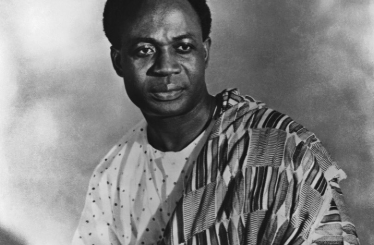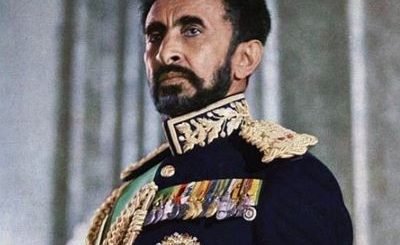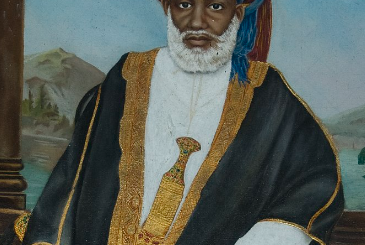Life and Major Accomplishments of Ahmed Sékou Touré, the First President of Guinea
Ahmed Sékou Touré was a pivotal figure in African politics, renowned for his instrumental role in Guinea’s fight for independence from French colonial rule and his subsequent leadership of the country as its first President from 1958 until his death in 1984.
His life and tenure were marked by a complex blend of significant achievements and controversial policies, reflecting the broader challenges and contradictions faced by post-colonial African states during the Cold War era.

Image: A photo of Sékou Touré taken in November 1962.
Early Life and Background
Born on January 9, 1922, in Faranah, Guinea, Touré came from a modest background. His family was part of the Mandinka ethnic group, and his ancestry included notable resistance fighters against French colonialism, which profoundly influenced his political orientation. Touré’s early education was in Quranic schools, followed by formal schooling in the colonial education system, which he left early due to his burgeoning nationalist sentiments.
Rise to Political Prominence
Touré’s political career began in the labor movement, where he quickly emerged as a charismatic leader. His involvement with the Post and Telecommunications Workers’ Union provided him a platform to engage in anti-colonial activism. Touré’s eloquence and leadership skills propelled him to the forefront of the Rassemblement Démocratique Africain (RDA), an umbrella organization of anti-colonial parties across French West Africa, and its Guinean section, the Democratic Party of Guinea (PDG).
Struggle for Independence
Touré’s leadership in the PDG was characterized by a vigorous campaign against French colonial rule. He was adept at mobilizing mass support through his powerful oratory and effective use of Guinea’s ethnic diversity to build a broad-based nationalist movement.
Touré’s defiance of French authority reached a zenith in 1958 when Charles de Gaulle, the French President, offered French colonies the option of greater autonomy within a French Community or immediate independence. Touré’s famous response, “We prefer poverty in freedom to riches in slavery,” resonated deeply with the Guinean people, leading to a landslide vote for independence on September 28, 1958. Guinea became the first French African colony to gain full independence, with Touré as its unequivocal leader.
Presidency and Governance
As President, Touré embarked on an ambitious program to transform Guinea into a socialist state. He nationalized foreign-owned companies and implemented extensive social reforms aimed at education, healthcare, and infrastructure development. Touré’s vision for Guinea was rooted in African socialism, emphasizing self-reliance, African unity, and the rejection of neocolonial influences.
Achievements of Ahmed Sékou Touré
- National Independence: Touré’s most significant achievement was securing Guinea’s independence, making it a beacon of hope for other African nations struggling against colonialism.
- Social Reforms: His government made substantial investments in public services, notably in education and healthcare, which significantly improved literacy rates and access to basic health services.
- Cultural Renaissance: Touré promoted a cultural renaissance, emphasizing African traditions and values, which fostered a strong sense of national identity and pride among Guineans.
- Non-Aligned Movement: Touré was a prominent figure in the Non-Aligned Movement, advocating for a middle path in the Cold War divide and seeking to establish a third world solidarity.
Controversies and Challenges
Touré’s presidency was also marked by severe challenges and controversies. His administration was criticized for its authoritarian tendencies, including the suppression of dissent, political imprisonments, and human rights abuses. The state’s control over the economy, while initially successful in asserting national sovereignty, eventually led to inefficiencies, corruption, and economic decline.
- Authoritarian Rule: Touré’s government gradually became repressive, with widespread surveillance, a one-party state system, and harsh treatment of political opponents.
- Economic Decline: Despite early successes in nationalization, Guinea’s economy suffered from mismanagement, leading to shortages, stagnation, and dependence on foreign aid.
- Ethnic Tensions: Although Touré initially harnessed Guinea’s ethnic diversity for the independence movement, his later years in power were marred by ethnic tensions and accusations of favoritism towards his own Mandinka group.
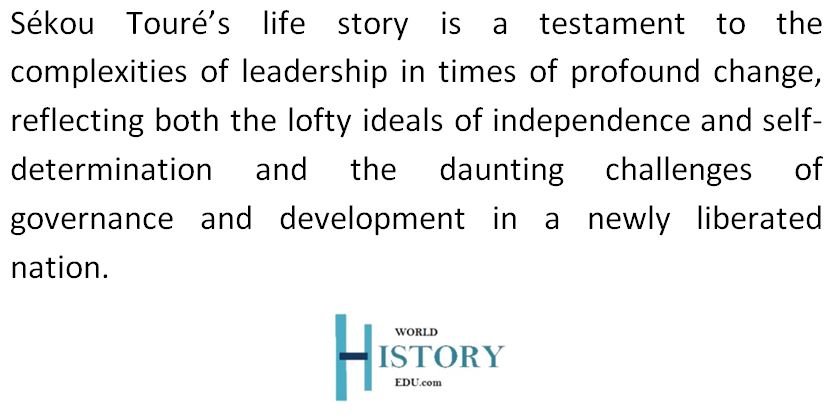
Foreign Relations and Pan-Africanism
Touré was a staunch advocate for Pan-Africanism and sought to position Guinea as a leader in the movement towards African unity and independence. He maintained close relationships with other African leaders and was instrumental in founding the Organisation of African Unity (OAU) in 1963.
His foreign policy was characterized by a delicate balancing act between the East and West during the Cold War, leveraging Guinea’s strategic position to attract aid and support from both blocs.
Did you know…?
After the ousting of Ghana’s first president Kwame Nkrumah, Sékou Touré gave refuge to Nkrumah. The deposed Ghanaian leader by President Touré, who saw him as a close ally and a leading Pan-Africanist figure. Touré honored Nkrumah by appointing him as honorary co-president. Nkrumah lived in Guinea for approximately six years, continuing his work and advocacy for Pan-Africanism until his death from prostate cancer at 62, on April 22, 1972, in Bucharest, Romania.
Kwame Nkrumah: History, Major Facts & 10 Memorable Achievements
Legacy
Ahmed Sékou Touré’s legacy is a complex tapestry of visionary leadership and controversial governance. His undoubted dedication to Guinea’s independence and African liberation made him a revered figure across the continent. However, his autocratic rule and the economic challenges Guinea faced under his leadership have also left a more problematic legacy.
Touré’s life reflects the broader narrative of post-colonial Africa, where the euphoria of independence often gave way to the harsh realities of nation-building in a world still deeply divided by superpower rivalries and economic disparities. His tenure illustrates the difficulties of transitioning from a colonial economy to a self-sustained, independent state governance, especially within the context of Cold War geopolitics.
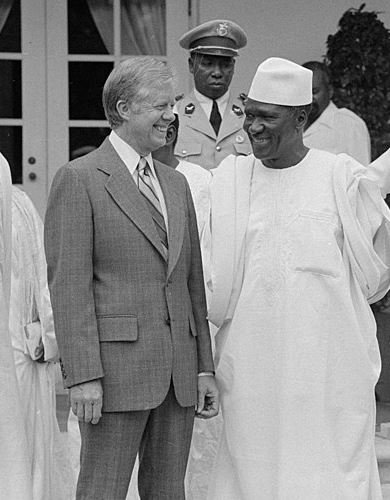
Ahmed Sékou Touré remains a figure of immense historical importance, embodying the aspirations, contradictions, and challenges of post-colonial Africa. Image: Ahmed Touré with President Jimmy Carter in August 1979.
Frequently Asked Questions
Ahmed Sékou Touré was a prominent Guinean political leader and the first President of Guinea, serving from 1958 until his death in 1984. He is best known for leading Guinea to independence from French colonial rule and for his strong stance on African socialism and Pan-Africanism.
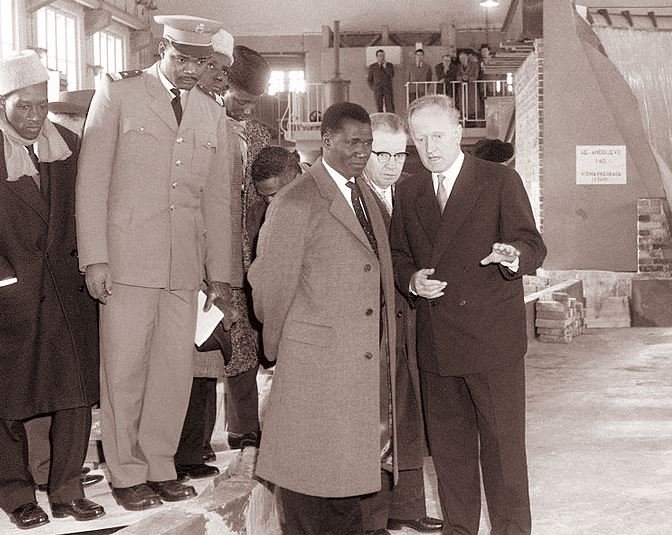
Image: Sékou Touré on his visit to Romania in 1979.
Below are some frequently asked questions about the Guinean leader:
How did Sékou Touré contribute to Guinea’s independence?
Touré played a crucial role in Guinea’s independence movement by mobilizing the Guinean people against French colonial rule, advocating for self-governance, and ultimately rejecting the French offer of continued association, leading Guinea to become the first French African colony to gain full independence in 1958.
What was Sékou Touré’s political ideology?
Sékou Touré was a proponent of African socialism, which emphasized collective ownership, economic self-sufficiency, and the rejection of neocolonial influences. He also strongly believed in Pan-Africanism, advocating for the unity and solidarity of African nations.
How did Sékou Touré’s presidency impact Guinea?
Touré’s presidency was marked by significant social and economic reforms aimed at improving education, healthcare, and infrastructure. However, his tenure was also characterized by authoritarian governance, with reports of human rights abuses, political repression, and economic challenges.
What was Sékou Touré’s relationship with Kwame Nkrumah?
Sékou Touré and Kwame Nkrumah, the first President of Ghana, shared a close friendship and mutual ideological beliefs in Pan-Africanism and anti-colonialism. Touré offered Nkrumah asylum in Guinea and even appointed him as honorary co-president after Nkrumah was deposed in a coup in Ghana.
Did Sékou Touré face any opposition or challenges during his rule?
Yes, Touré faced significant opposition and challenges, including several coup attempts, internal dissent, and criticism from the international community for his government’s human rights record. Economic hardships and ethnic tensions also posed challenges to his administration.
What were some of Sékou Touré’s major achievements?
Some of Touré’s major achievements include leading Guinea to independence, implementing widespread social reforms, and establishing Guinea as a center for Pan-African cultural and political movements.
How is Sékou Touré remembered in Guinea and Africa?
Sékou Touré’s legacy in Guinea and Africa is mixed. He is remembered as a hero of Guinea’s independence and a champion of African unity, but his authoritarian rule and the negative consequences of some of his policies have also been subjects of criticism.
What led to the end of Sékou Touré’s rule?
Sékou Touré remained in power until his death in 1984. His rule ended with his passing, after which Guinea transitioned to a new leadership under President Lansana Conté, who came to power following a military coup.
How did Sékou Touré’s policies impact Guinea’s economy?
Touré’s policies, including nationalization and state control over the economy, initially aimed to promote self-reliance and reduce foreign dependency. However, over time, these policies led to economic inefficiencies, decreased productivity, and contributed to Guinea’s economic struggles.
